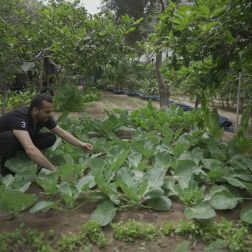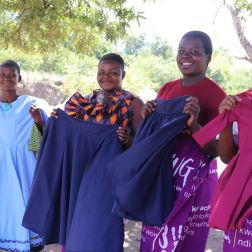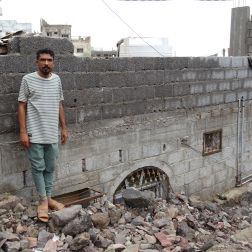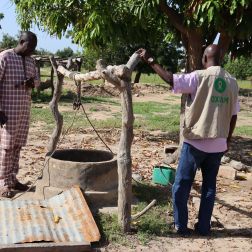- 8 mins read time
- Published: 17th October 2016
"We fled from our home... there were so many bodies on the streets."
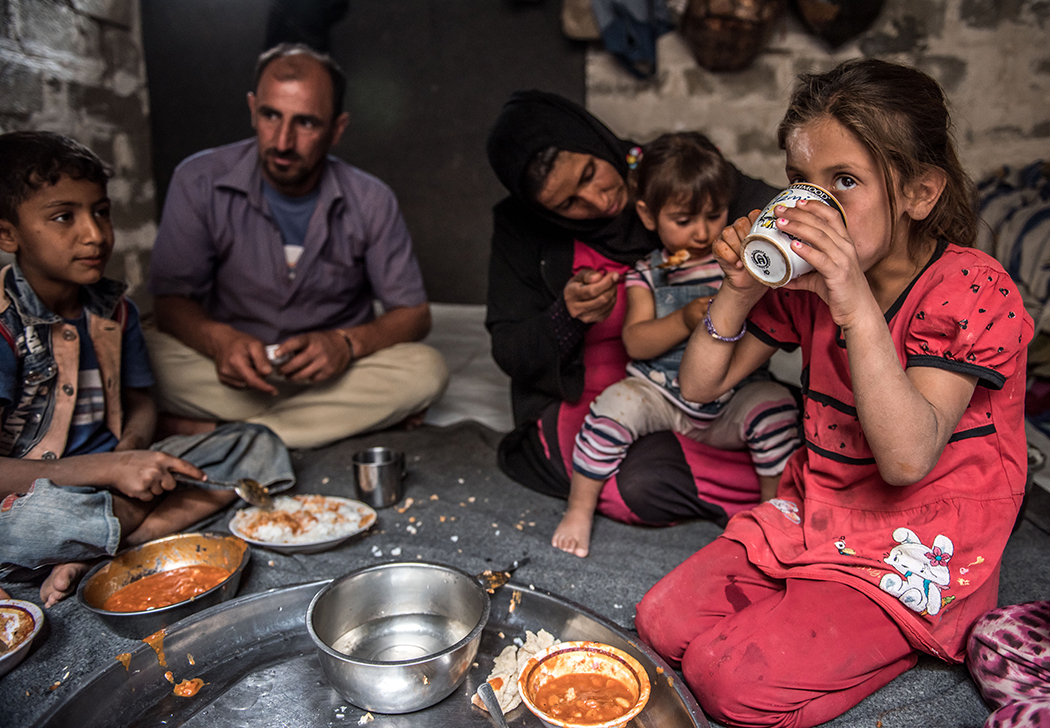
Wafaa and her family in the half build house they now call home. Photo: Tommy Trenchard/Oxfam
"We fled from our home; there were so many dead bodies on the streets." Wafaa (name changed to protect identity) sits on the floor in one of three rooms in a small, half-built house her brother rents for their families in Kahlo Bazini, in Kirkuk, northern Iraq. Conditions in the house are basic at best, some of the walls aren't yet finished and until Oxfam intervened they had no facilities to wash, no toilet, and no clean water.
"Our living situation is difficult, but we make things work; my brother works cleaning shops so that he can earn money to provide food for us. My children and I all depend on my brother. He goes to clean the shops and then brings home vegetables, things like tomatoes, and shares them between my children and his. We have lived in this same situation for a while," explains Wafaa.
Before arriving in Kirkuk, Wafaa and her family moved several times trying to escape ISIS as they took control of large areas of Iraq in 2014. "When we first left out home, we went to my brother's house in Al Eshaqi. We were there for three days and then attacks, bombing and killings started in the streets, so we left to go to my sister's house; she lived far away from the places that had been captured by ISIS. We didn't stay there very long though, about 27 days, and then the fighting started there as well. There were airstrikes, missiles and bombs everywhere."
At one point Wafaa and her family were forced to live in an empty school building: 'The school had no appliances; there was no water, toilets or place to wash; the water we were using came directly from the river, it was dirty and polluted. It gave us a lot of infections and allergic reactions. No one came to check if we were okay and the fighting continued to reach us again.
"Then my son got ill; he fell on the ground and his face swelled up. My son is only six years old. I had to tell my family that I couldn't stay there any longer." But the area was surrounded from both sides.
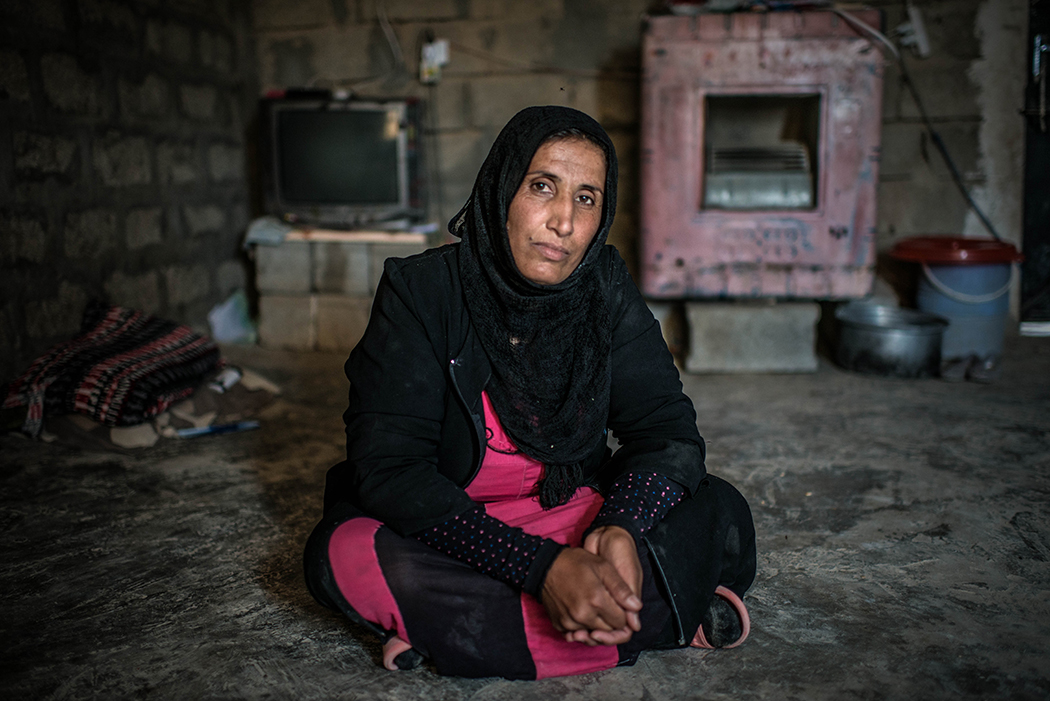
Wafaa Derwesh* (name changed), 39, was displaced with her family when ISIS took control of her village. She now lives in a small village near Kirkuk called Khalo Bazini. Photo: Tommy Trenchard / Oxfam
The school where Wafaa and her family were staying was isolated and very far from any roads, "It was like we had escaped to a small empty island far away", Wafaa explains. "There was no water and no electricity. And then ISIS struck. Three ISIS fighters who were carrying guns and firing passed by us; we were so scared we ran away again.
"When ISIS came, there were a lot of other families at the school; many of them left the school with us to escape ISIS. They put their black flag above the school; the same school that had been like a home to us." As Wafaa sits in the dark room of the house she and her family now call home she tells the story of how they escaped from ISIS.
"We left the school at around 4.00am and we reached the army controlled area at 12.00pm. ISIS had destroyed all the bridges. It was a cold winter, we had no clothes with us and we were trying to escape from ISIS. We were in bad situation, but there were other families and relatives who couldn't leave because ISIS had already taken control of the area and taken them under siege."
Not all of her family had been so fortunate. "My sister was still living at the school. She didn't have a car, and random bombing and air strikes had already begun between the army and ISIS. She was alone in the middle of their battle. She called my mom and told her the battle had begun and that she was about to give birth to her baby.
"One of my sister's neighbours was her midwife at the birth. It all happened during these air strikes and bombings. We were having a very cold and rainy spell and my sister was giving birth to her new child. She had been complaining about the pain in her stomach but there was no doctor, no food, and no medicine, and no car for her to get to them."
Even though ISIS had surrounded the area, Wafaa and her brothers went back to the school to try and fetch their sister. They wanted to get her the medical help she so badly needed. "She was on the dirty ground that had been polluted and her stomach was too swollen, I can't describe it, we couldn't do anything for her; we were helpless and powerless. It was very difficult to see her like that; she was my sister."
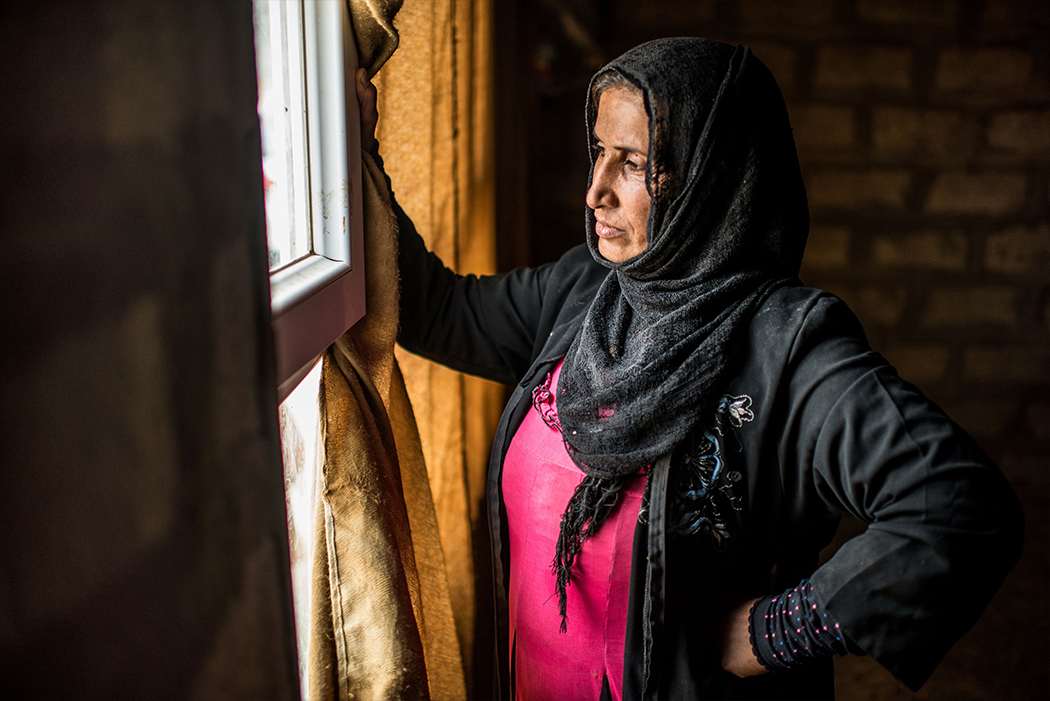
Photo: Tommy Trenchard/Oxfam
Wafaa managed to get her sister out of the school but she died soon after that. 'That's how I last saw her; it was very tragic; we all suffered and felt sad about losing her. We had become displaced in one way, and her daughters who are very young became displaced in a different way.' After her sister died, Wafaa took in her nieces and now provides for them as well as her own children.
There are currently over 3.2 million people displaced in Iraq, and even after their village or town has been recaptured from ISIS, families like Wafaa's aren't able to go home due to the level of destruction, number of mines left behind and the slow vetting process that ensues. "Our area was liberated a long time ago," Wafaa explains, "but they won't allow us to return because there are mines that have been planted, explosive devices and bombs in our farms and houses. Behind our home ISIS planted many bombs and explosive devices.
"I'm not afraid of anything. I'm waiting for the checkpoint at Balad to open and then I'll return to my house. My home was small but nice, and I was living happily in it. We left because ISIS attacked us; missiles were falling everywhere and my children were crying. It was a difficult situation and it was hard on my children. I couldn't make them understand that we had left because of the bombing and the battle between the army and ISIS. My children were afraid of ISIS.
"My young children are always saying that they miss their games and our house. They ask me when will we go back? All the displaced people here want to return to our homes because we are exhausted."
WHAT OXFAM IS DOING IN IRAQ
On Friday October 7th Irish Aid delivered 80 tonnes of aid to Iraq for Oxfam to distribute to vulnerable people fleeing the conflict in Mosul and beyond. Items being sent include blankets, jerry cans, cooking sets, water tanks, tarpaulins and shelter kits.
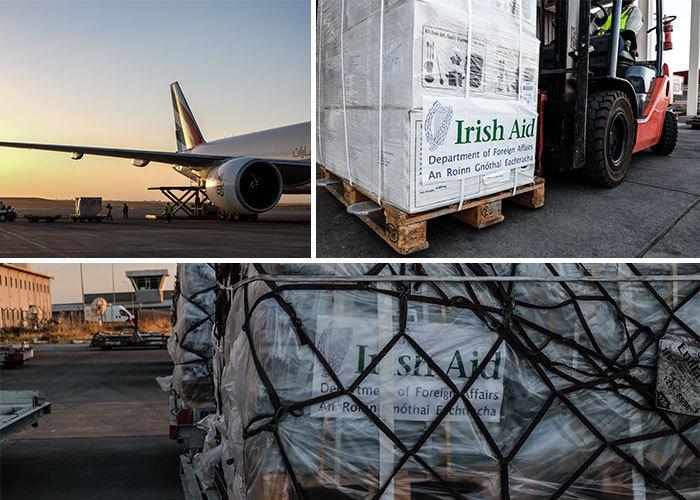
Ireland's Minister for Foreign Affairs Charlie Flanagan said he is gravely concerned up to 1.5 million people in the city of Mosul have been living under siege for more than two years, with a further 1 million in surrounding areas currently under ISIS control.
Oxfam has been working in 50 villages and towns across Diyala and Kirkuk governorates in northern Iraq since 2014. We are providing safe water in camps and in communities where people who have fled the fighting are sheltering, and enabling people to earn a living so that they can support their families. We have also been helping families as they return home once it is safe to do so.
We are now scaling up our response in the Mosul Corridor, operating in Salah Al-Din and Ninewa governorates. Oxfam is also working in the key strategic area of Qayyarat, which is 80km south of Mosul and sandwiched between ISIS-controlled territories. We are providing clear water and sanitation and essential items like blankets and hygiene kits.
Oxfam works across Iraq including in the Kurdistan Region of Iraq.
As military operations begin to retake the city of Mosul and surrounding areas from ISIS, we are expecting to help 60,000 people.
